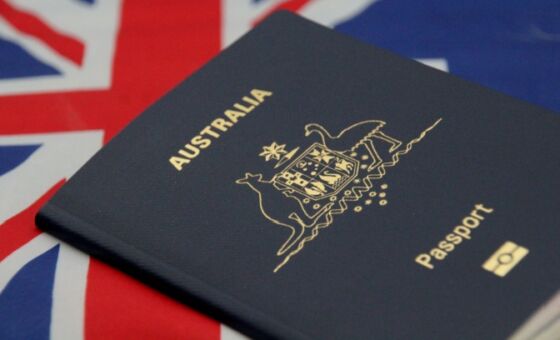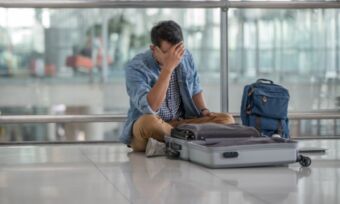Holidaying away from home this Christmas? Don’t fall for any scams.
Travel scams have been hitting Australians hard this year, with the ACCC’s Scamwatch reporting that in 2016 from January to October, Australians have lost $123,830 to travel scams. Around the country, people submitted 837 scam reports – 8.5% of which involved financial loss.
While these scams can hit at any time of year, including the chilly winter months, the summer holidays are a particularly fraught time when it comes to travel scams.
Compare Travel Insurance with CANSTAR
What can a travel scam look like?
1. Winning a travel prize
Travel scams have in the past largely taken the form of offers for holiday vouchers, or hugely discounted fake tickets for trips to overseas destinations. According to ACCC Deputy Chair Delia Rickard, these scams often appear to be completely legitimate.
“Sometimes scammers will provide authentic-looking tickets and itineraries but when it comes time to travel, these documents are useless and the business cannot be contacted,” she said.
“Watch out for these fraudsters cold-calling and announcing that you’ve won a travel prize, ranging from discount accommodation vouchers to whole holiday packages.
“To redeem the prize, you will be asked to provide personal information such as your credit card and driver’s licence deta@ils before they can send it to you,” Ms Rickard said. This may sound familiar if you’ve read our reports on online banking scams!
Many scams include being asked for credit card details in order to “unlock”, “process”, or “access” a fraudulent prize. Giving your credit card details to a stranger is an all-round terrible idea, unless you fancy falling victim to credit card fraud.
Case Study: Betty*
 Betty* was 68 years old and living comfortably but carefully on her retirement funds. She liked to travel and promised herself a holiday when she retired but just hadn’t quite managed to save enough. When Betty was browsing the internet, she came across a competition to win a holiday and thought to herself that this might just be the lucky break she needed.
Betty* was 68 years old and living comfortably but carefully on her retirement funds. She liked to travel and promised herself a holiday when she retired but just hadn’t quite managed to save enough. When Betty was browsing the internet, she came across a competition to win a holiday and thought to herself that this might just be the lucky break she needed.
To enter the competition, Betty was required to complete an entry form that asked her questions about her travel preferences together with a lot of personal details. This included her bank account details and a copy of her passport. The details would let the company transfer winnings to her nominated account and a photocopy of her passport was required so her flights could be booked straight away.
A month had passed by and Betty had forgotten all about the competition. That was until she was contacted by her bank who advised her of suspicious activity on her account. The bank informed her that a series of out of the ordinary transfers were being made to overseas accounts. The bank also informed her that a new credit card had been ordered [in her name] and was already $3,000 in debt. The bank asked if Betty had provided her bank account details or password to anyone recently and she realised it must have been the competition she impulsively entered.
The bank cancelled the credit card and attempted to reverse the latest transactions but was unable to retrieve Betty’s money. In the few months since providing her personal details to the scammers, they had hacked into her bank account, taken most of her savings, and were clearly using her identity to create new credit cards.
*All names have been changed by the ACCC and aspects were drawn from real examples for illustrative purposes.
Source: ACCC 2015 report: Targeting Scams
2. Paying too much for overseas goods
Travel scams can also simply take the form of being conned into paying big bucks for counterfeit or low-value goods overseas.
How I fell for the most obvious travel scam https://t.co/YI4FqriRD3
— Traveller (@TravellerAU) 30 September 2016
3. Fake travel club memberships
Another increasingly common tactic being employed by scammers is approaching overseas travellers in person and offering them fake travel club memberships, which can end up costing the victim several thousand dollars.
Reports from several victims detail large (upwards of $2,000) initial deposits being required via credit card, and then several follow-up payments being required to access “full membership”. These scammers have been reported operating in hotels and bars in the Asia Pacific region, and victims described being approached by non-locals.
How to avoid falling for internet travel scams
According to Scamwatch, Australians lost over $229 million to scams in the last year, along with an estimated $17.1 million in unreported lost money – that’s big business!
It has also resulted in 105,200 complaints to the Australian Competition and Consumer Commission (ACCC), including complaints about discount accommodation vouchers.
Here are a few tips to minimize the risk of falling victim to scams on the internet:
- If you receive an email offer that sounds great, resist the temptation to click on an embedded link. Always contact the accommodation place independently, using details sourced elsewhere.
- Be wary of unsolicited phone calls, emails or approaches in person. Remember that if something sounds too good to be true – it probably is!
- The “too good to be true” rule of thumb should also be applied to advertisements on reputable websites or in reputable print publications as scammers can easily post fake advertisements here as well.
- Always keep your computer security up to date to help minimize the risk of viruses and spyware.
- Only make payment through secure channels and only do so when you have verified the legitimacy from the place of accommodation.
Have Australians become more travel scam-savvy over the years?
One would hope that as the years go on, Australians become more aware and more wary of the various kinds of scams employed to try and separate them from their hard-earned cash. This is probably true, but the monetary value of scams is increasing so that Australians seem to be faring worse with every year that goes by. 2014 saw 1,718 separate reports of a travel scam being enacted, and only $107,950 lost, whereas in 2015, only 725 scams were reported, but a whopping $163,141 was lost.
So far in 2016, we’ve reported 837 scams, and the amount we’ve lost to travel scams so far this year is slightly better than last year at $123,830 – but the year’s biggest holiday travel season is not over yet.
Remember to protect yourself, and exercise extreme caution concerning anything financial when on holiday overseas.
It’s also important to remember to keep your house and property safe when you’re travelling for the holiday. This article lists some ways to keep your home safe while you’re away on holidays.
Protect yourself with travel insurance
Don’t get caught in an unfamiliar situation without travel insurance! It can be extremely useful for covering any travel scams you may accidentally find yourself in. Don’t know where to start? Try comparing travel insurance policies on the Canstar website. We compare over 300+ travel insurance policies so you don’t have to. Compare Travel Insurance with Canstar today!







